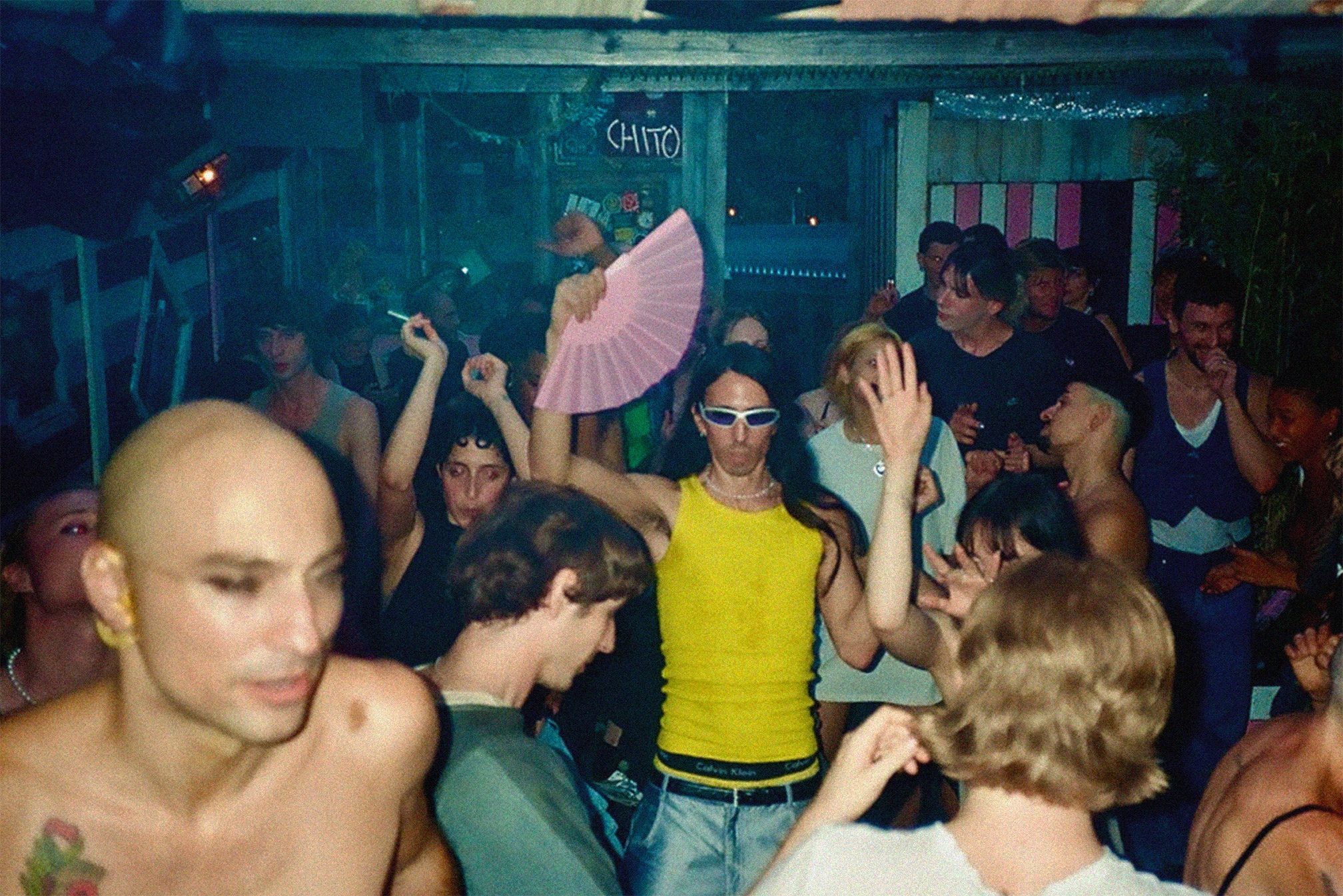 Features
Features
How Mala Junta disrupted Berlin's nightlife
Unlike many other parties in Berlin, Mala Junta isn't a place for harnesses and all-black everything. Its three founders reveal how they forged their own DIY path and brought something fresh to the city's underground scene
To the devoted community it's fostered over the past five years, Mala Junta is more than just a party. It's discovering a dank basement club behind a beer fridge, or enduring a sweltering eight-hour set—cut short only because the DJs ran out of toilet paper to wipe sweat from their vinyls. It's being beckoned into a party by two queer Black models in White Chicks masks, or bumping into a group of club kids dressed as the ingredients of a fruit bowl. It's shouting "BEBÉ!" across a crowded smoking area and 25 people turning around. To one guy in particular, it's dancing so hard you sustain an injury, only to return from the hospital hours later—with stitches in your face—to catch the closing.
Meaning both "bad behaviour" and "bad company" in Spanish, Mala Junta is code for brass-necked debauchery: a celebration of the outlandish and degenerate behaviour that seems only to unfold when in the company of partners in crime. But the Berlin party has evolved into more than an outlet for hedonism. It has instigated a shift in Berlin's underground, applying disruptive principles to forge its own DIY path and write new rules free in the face of institutional bureaucracy. Its emancipatory approach to music has fostered a dedicated and far-flung crowd, and also earned it the honour of being the first Berlin collective to take over and curate the line-up of Berghain's Klubnacht—twice—and has seen the party transported to cities such as Tbilisi, Bogotá, Seattle, London and Istanbul. But regardless of where you encounter Mala Junta, its ethos leaves a mark and has set a precedent for club culture that is both uninhibited and unpretentiously progressive.
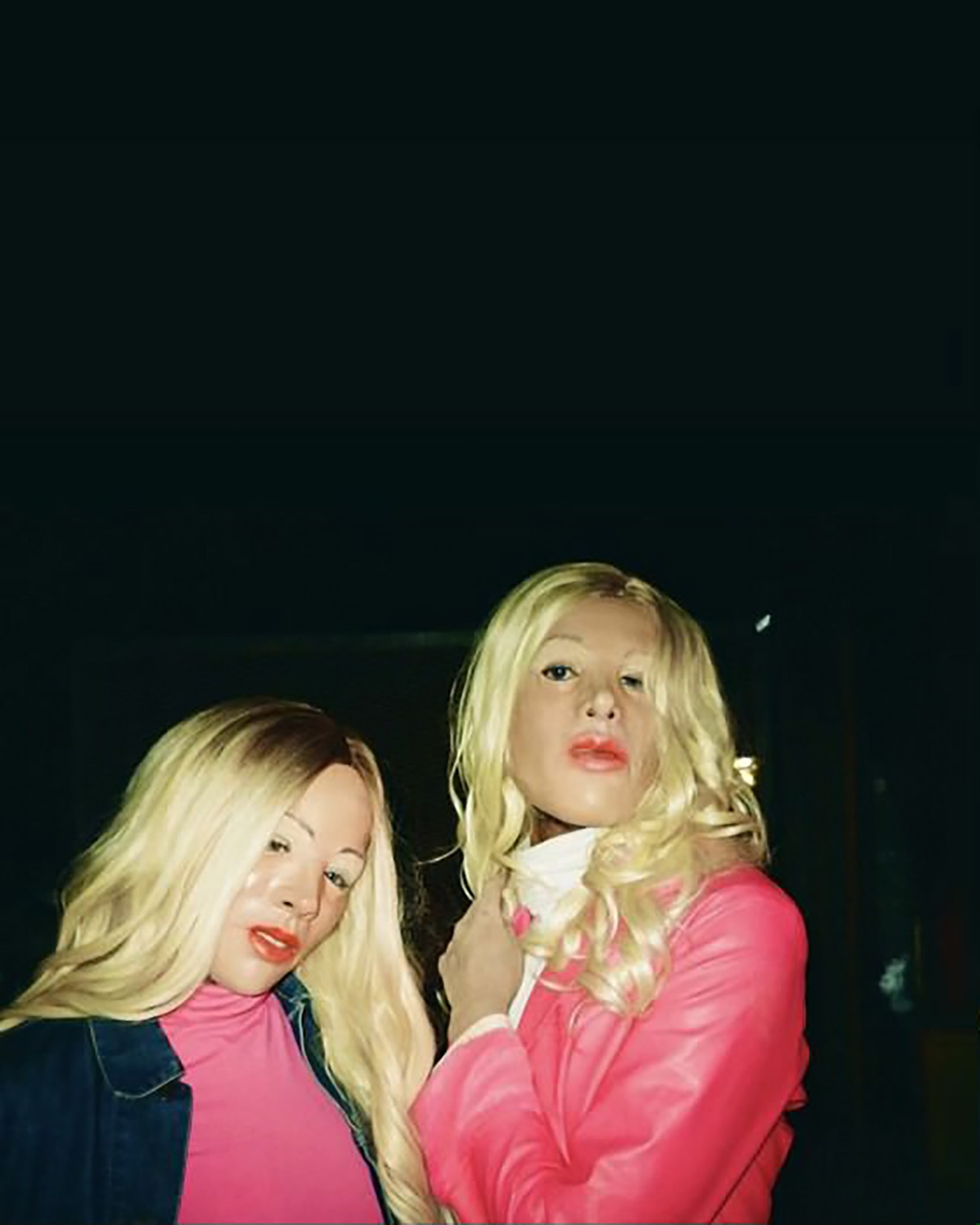
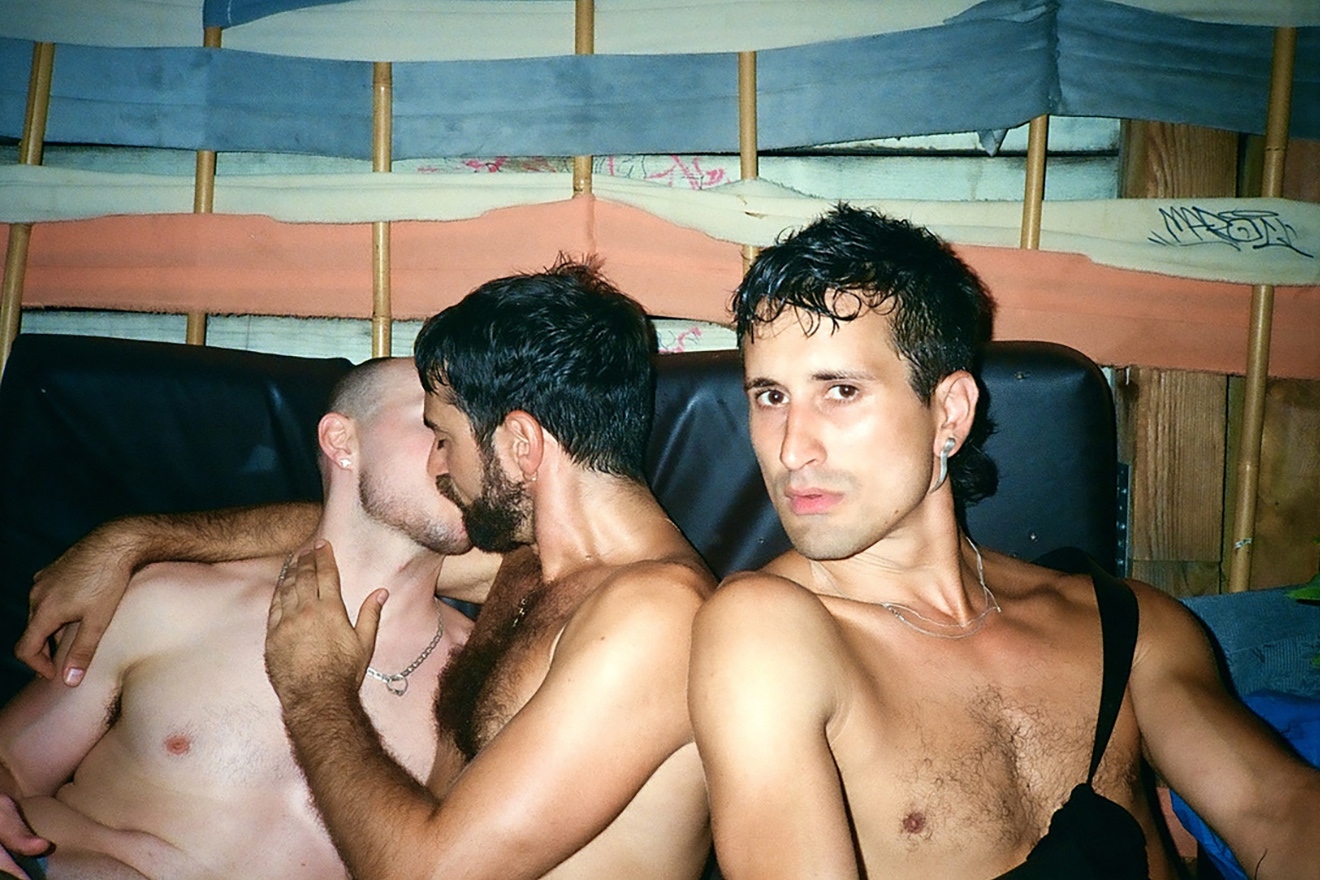
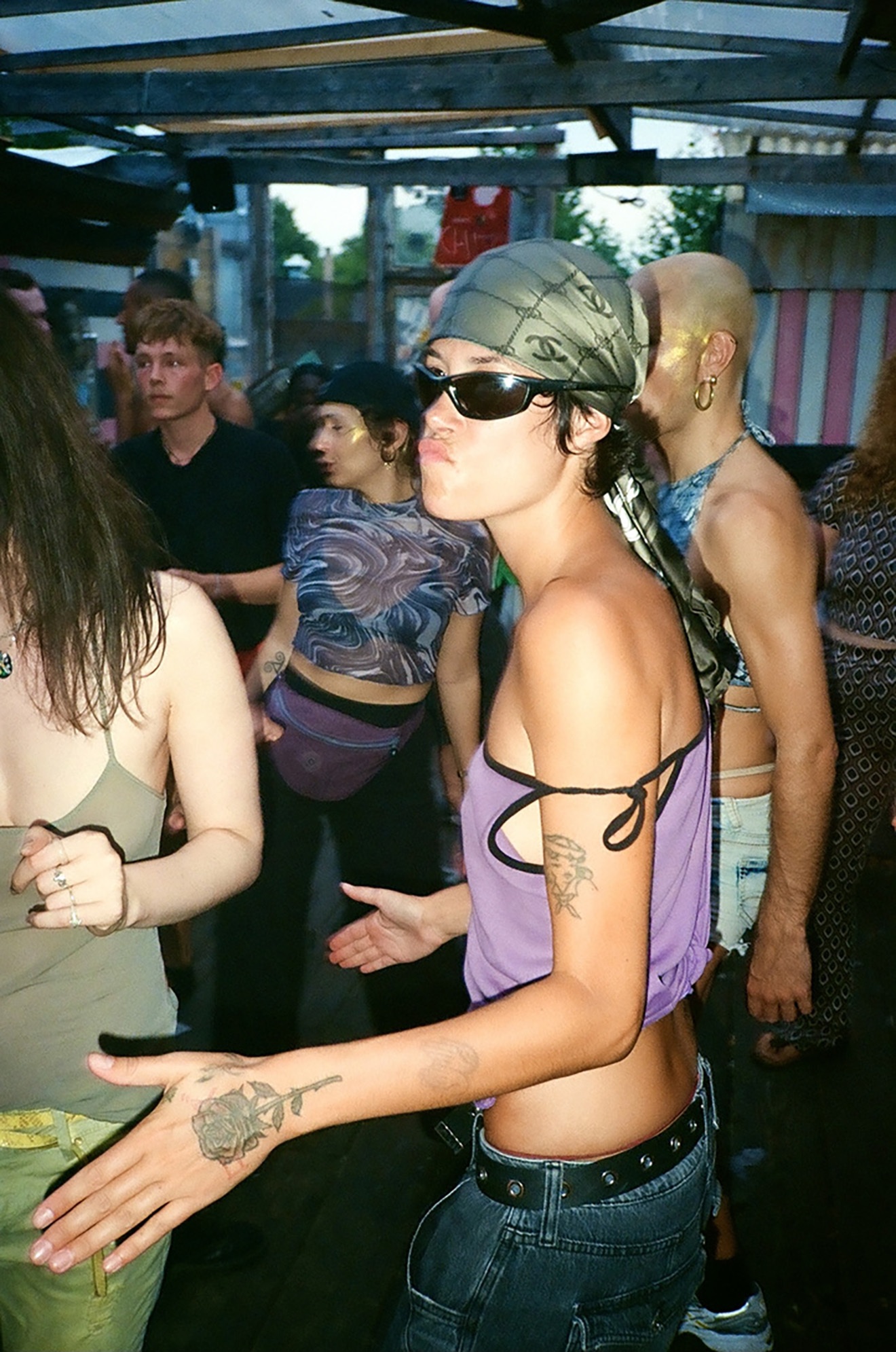
Conceived in 2018, Mala Junta is the loveable problem child of Ana Laura Rincón (aka Hyperaktivist), Joachim Palsby (aka DJ TOOL) and Nayme. Hailing from Venezuela, Denmark and France respectively, they moved to Berlin for reasons both personal and political, and connected on its dancefloors, where (characteristically for anyone who knows them) they spent the whole night talking. But their union was unlikely even to them. “It was surprising on so many different levels,” Nayme explains. “I’m this Black queer guy from the north of France, and Jojo’s this straight over-tattooed punk from Copenhagen.” Rincón is—as Nayme sums up—a Scorpio, and ‘Hyperaktivist’ by name and nature: Her presence unapologetic, her shade unparalleled, her husky laughter and characteristic colloquialisms echoing across any room. Witnessing the three together is a kind of chaotic good: They interrupt each other, talk over one another, and finish each other’s sentences. They hold each other accountable with playful contention—raised eyebrows, caustic quips, and quick looks cast in each other’s direction. “I always say we have this weird relationship—I feel like they're my best friends, sometimes they're like siblings, but at the same time, I feel like they're my parents, and vice versa. It’s a very interesting, dynamic,” says Nayme.
At the time of their first meeting, Hyperaktivist’s DJ career was progressing slowly—picking up only after her femme-forward club concept MESS secured its residency at OHM—and TOOL was just a beginner.
"The scene was very closed back then," says Hyperaktivist. "It was very masc, and didn't exactly make women feel comfortable—on the contrary, it made you feel like you were intruding." Jaded by the limitations of Berlin's techno establishment, the trio drew on the DIY principles of ‘90s rave culture to found Mala Junta, a concept that hoped to bring intimacy, integrity and sonic innovation to the city's queer underground.
"We felt, sound-wise, that the scene was stagnating," says Nayme.
"The parties had been the same for years," Hyperaktivist adds. "It was the same clubs, the same sound, and the same 10 DJs playing."
While TOOL's native Copenhagen was establishing its unapologetically "harder, better, faster, stronger" identity—complete with breakneck BPMs and the sexy psychedelia of '90s trance—the Ostgut Ton techno that dominated Berlin's club culture felt stale in comparison. Stimulated by the propulsive sound being pioneered by the likes of Sugar, Rune Bagge, Mama Snake, Repro and Schacke, but unable to find it in Berlin, Mala Junta was born to make space for the artists who inspired them.
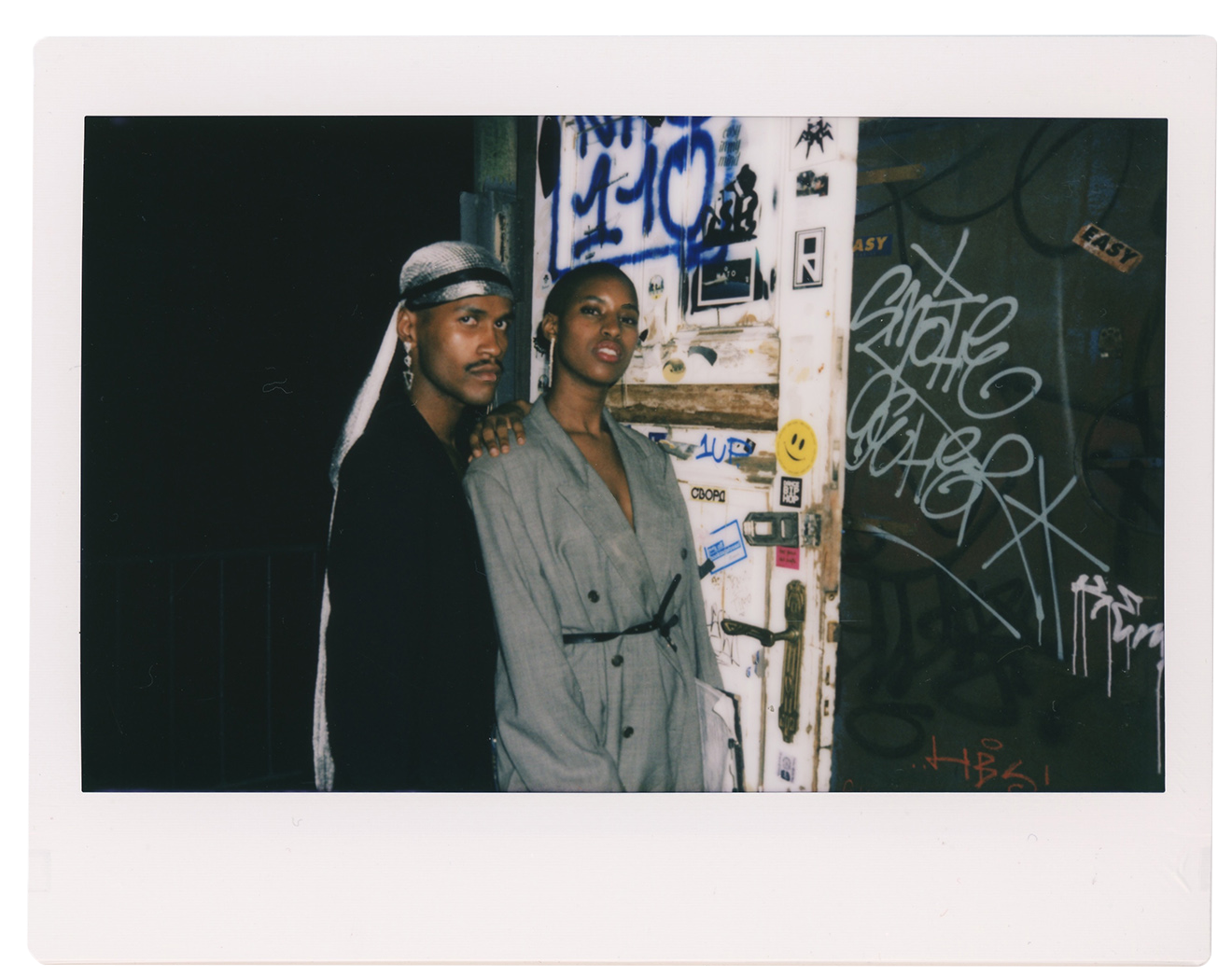
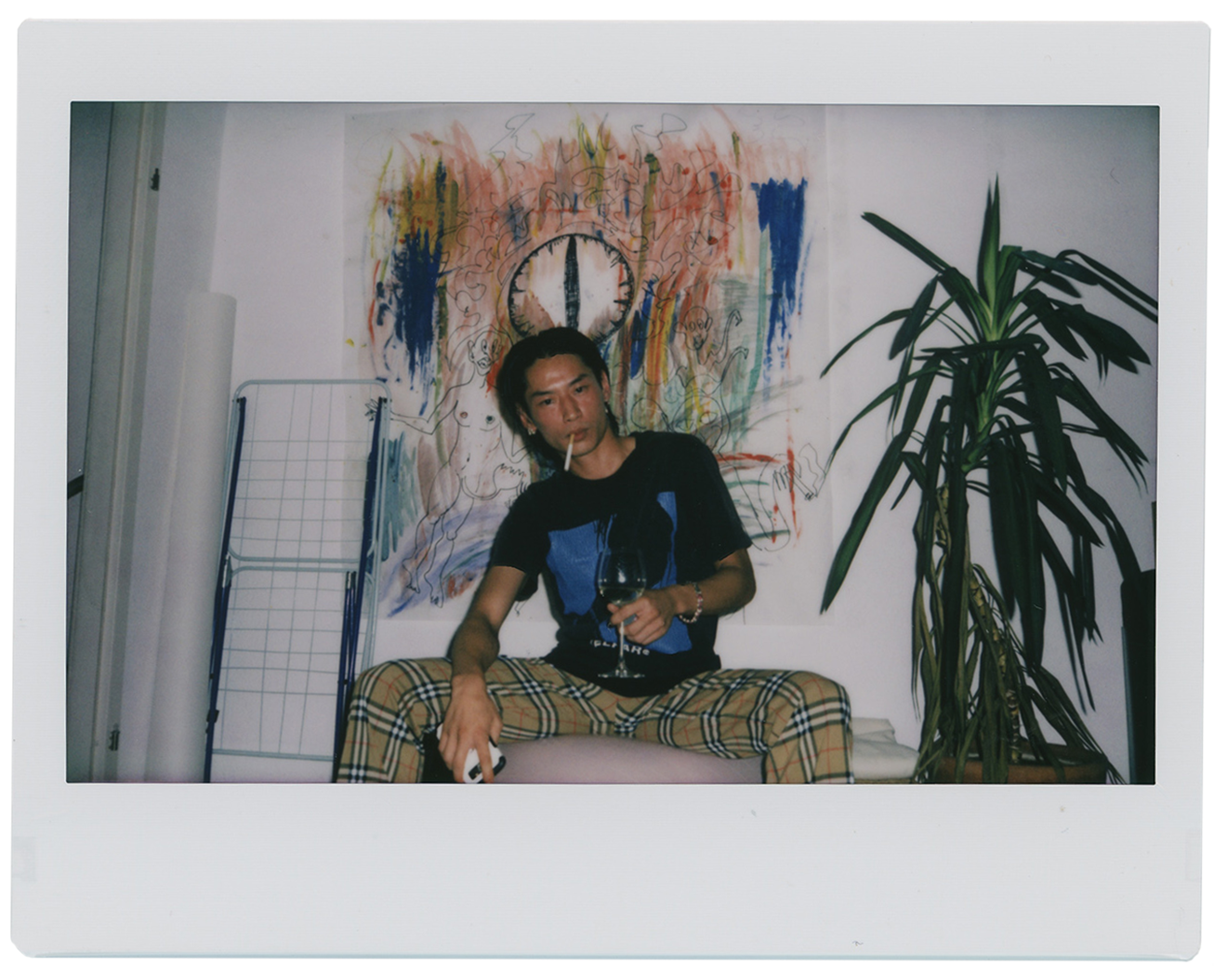
The party found its first home at Diskotek Melancholie 2, an endearingly dishevelled club on the border of Kreuzberg and Mitte, accessed through a fridge at the back of a Späti. "That club was epic, but risky," says now-resident Why Be. Piles of jackets littered the perimeter of the club, bags and belongings were shoved into corners and under tattered sofas because the makeshift "cloakroom" (a glorified coat-rack) ran out of hangers.
"It was dirty, it was seedy, it was sweaty," says Nayme. "The toilet kept getting flooded…But somehow it was so sexy."
At that time, Mala Junta's reputation spread by word of mouth (the collective remained off Instagram until last year) and by its fourth edition—not even a year in—the party had already outgrown Diskotek Melancholie 2, setting a new attendance record for the club.
"But it didn't just blow up—," says TOOL.
"I mean it kind of did…" says Hyperaktivist, and Nayme laughs.
"No, the first party was totál," TOOL continues, instinctively adopting the Latin American slang that has seeped into their vernacular via Hyperaktivist (along with colocada—crazy/ high, marica—a reclaimed pejorative queer slur, and the beloved bebé—not only a term of affection but a kind of endearing eye-raise to question someone's behaviour.) "But the second party we lost all the money we made in the first party. I played the closing to like three people." Coinciding with the notorious Cocktail d'Amore, and Freddy K closing at Berghain, the turnout had been underwhelming. But the party's fourth edition solidified Mala Junta's status.
Read this next: Bend&Shake is creating a safer place to party for people who need it
"It was that party that really sent us somewhere," says TOOL. Blending the merciless, melodic techno from Copenhagen's new wave with '90s acid trance, Danish brother duo Lund&Rønde delivered a six-hour closing set that etched their names into the annals of Mala Junta history.
"I think many people had really never heard this kind of music," says TOOL. The caustically percolating trip of LSG's 'Sweet Gravity' from 'Rendezvous In Outer Space' felt fittingly alien, and TOOL remembers a sea of blue iPhone screens lit up in desperate attempts to Shazam every track.
For the party's now-resident D.Dan, the Mala Junta sound was a revelation. The US producer responsible for ‘Sudan Sedan’—the inexorable track that reverberated across every dancefloor around that time—had been digging this old-school techno sound for years before hearing it in a club. Seeing TOOL play at Mala Junta struck a chord.
"It was the first party I felt that was really bringing something new," he says. And soon after becoming acquainted with Mala Junta, D.Dan was welcomed into its orbit. "His sets are like this extremely tension techno where the whole room is vibrating," says TOOL. "We met and it just clicked."
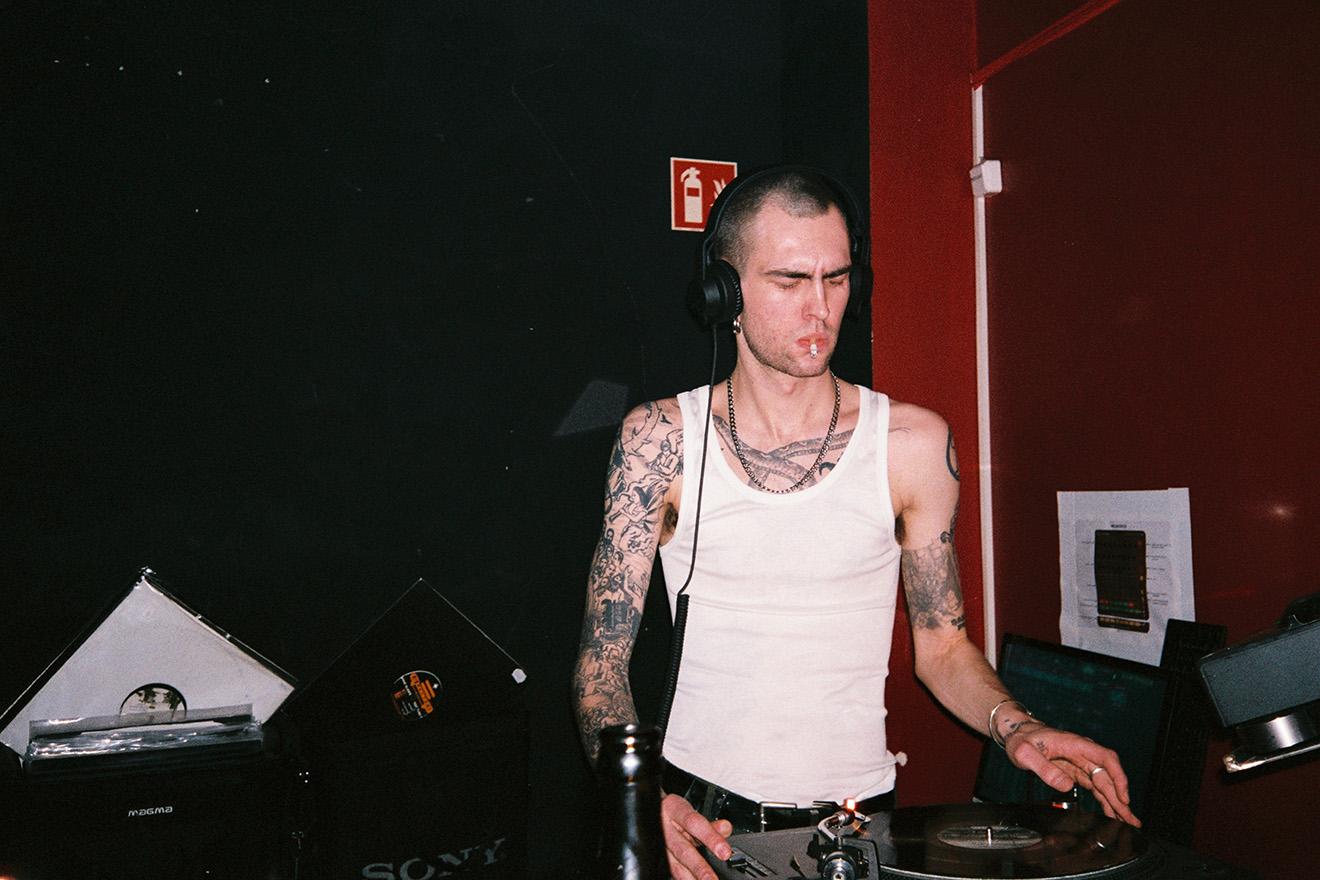
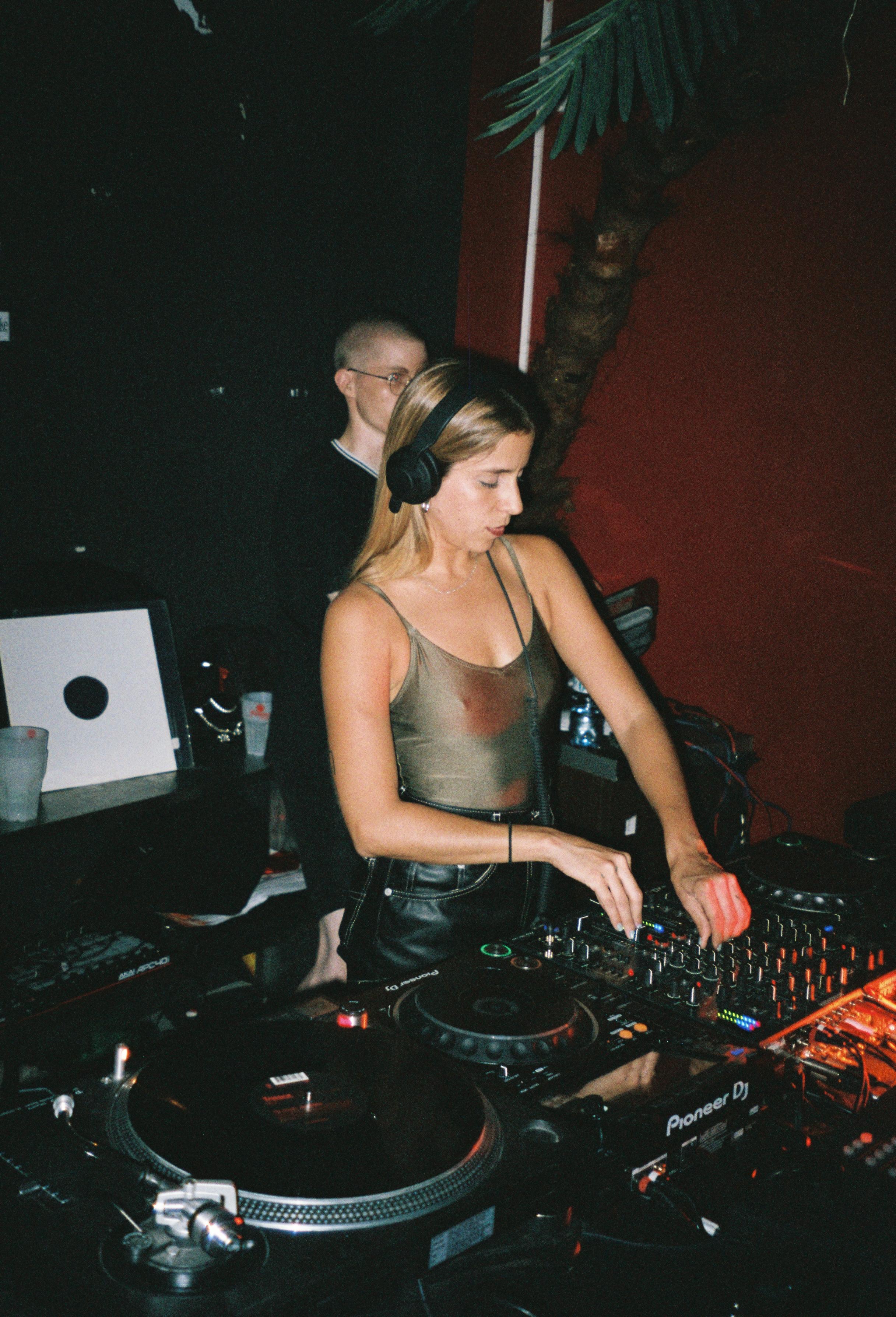
In the five years since, Mala Junta's sonic identity has evolved far beyond the Copenhagen techno it was first associated with. With line-ups often boasting as many as 14 DJs across sometimes three different dancefloors, there's no one singular sound. "It's the only 'techno party' where I didn't feel restricted by the fact that it was a techno party," says Why Be, who has been a resident since 2020, and is responsible for at least one aspect of the party's musical augmentation. The former JANUS resident and Yegorka label co-founder made his name within the deconstructed club scene, but despite his long-term friendship with TOOL, never imagined himself on a Mala Junta line-up until he was booked to close at the party's second venue, Fiese Remise. When Nayme saw the crowd whining to an edit of Fetty Wap's 'Trap Queen', something clicked. "[Why Be] has this extraordinary ability of blending completely oxymoronic genres," he says. "And it just made sense."
The diversification of Mala Junta's sound has also directly translated to its atmosphere, engendering a unique coalescence of crowds that were once disparate in Berlin. "[Why Be] was the first one to bring these R&B and hip hop influences to a party that would have otherwise been defined as a ‘techno' party," TOOL says, "and combining those two worlds really felt like something new. It drew in people who would normally not spend their Saturday nights in a techno club, but then find out they love it for the vibe—and for the music."
Today, Mala Junta is a space where melodic prog house blends into baile funk, and sludgy psychedelic trance fades into frenetic-speed dembow—a subset of a genre typically more associated with dancehall parties than techno ones. "We're building bridges between genres and crowds that didn't necessarily have a connection before," says Hyperaktivist. Where other parties in the city were honing in on a specific niche—for example, Herrensauna on darker, industrial techno, and Cocktail d'Amore on Italo disco—Mala Junta chose to zoom out. "I think the range of music really reflects in the open-mindedness of the people that come," says the party's newest recruit, Yazzus, who was scouted by the collective via Instagram for their Berghain takeover. She describes herself and Why Be as the party's resident wildcards.
"I think the vibe is owed to a magical combination of people and energies more than people going for a trend or to hear a certain genre being played," says Why Be.
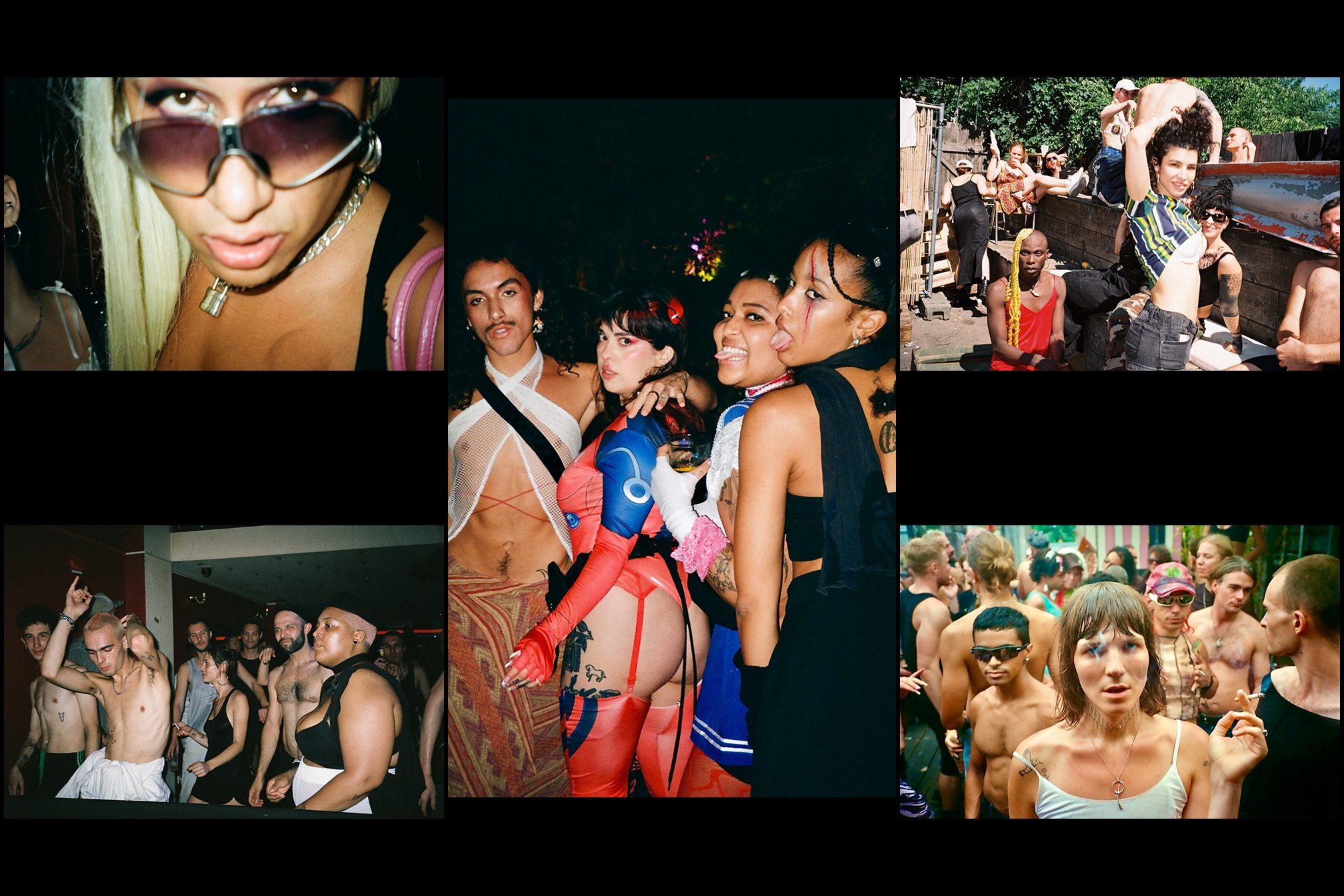
It's testament to Mala Junta's ethos and execution that its indescribable energy has become its defining feature, but it's an irrefutably esoteric thing to describe. "Mala just always had that weird 'X factor'," says Why Be, "that golden edge that made people assume it was gonna be fun or exciting." Mala Junta was started by friends for friends, and it's managed to incubate a spirit of intimacy. The party has grown organically through the friends and fans of its Berlin-based residents, who have become best friends in real life. It's not uncommon for DJs to stay in the party from start to finish, which is becoming increasingly rare in an industry built on an in-and-out international touring model. Dancing beside a DJ you just saw play erodes the sense of hierarchy. "It breaks the barrier between the booth and the floor," D.Dan says. "We all arrive together, we hang out. The energy spreads around the room."
For Why Be, the secret ingredient is an unpretentious one. "I think people can genuinely tell we have fun," he says . "And that's actually rare. You might see a photo and be like, ‘oh they look cool,' but I always get the sense that people look at us and they get a feeling that this is gonna be fun."
Though Mala Junta enforces a no-photo policy among attendees, pictures by its in-house photographers reveal the freedom and eccentricity contained within the party's four walls. Most notably perhaps is Mala Haunted, its now-yearly Halloween edition, which has seen costumes ranging from RiRi's baby bump reveal, to Goya's Saturn, to the very prickled Pinhead that somehow survived Re:mise's sweat-filled subterranean dancefloor. Unlike many of its Berlin techno counterparts, Mala Junta isn't a place for harnesses and all-black-everything.
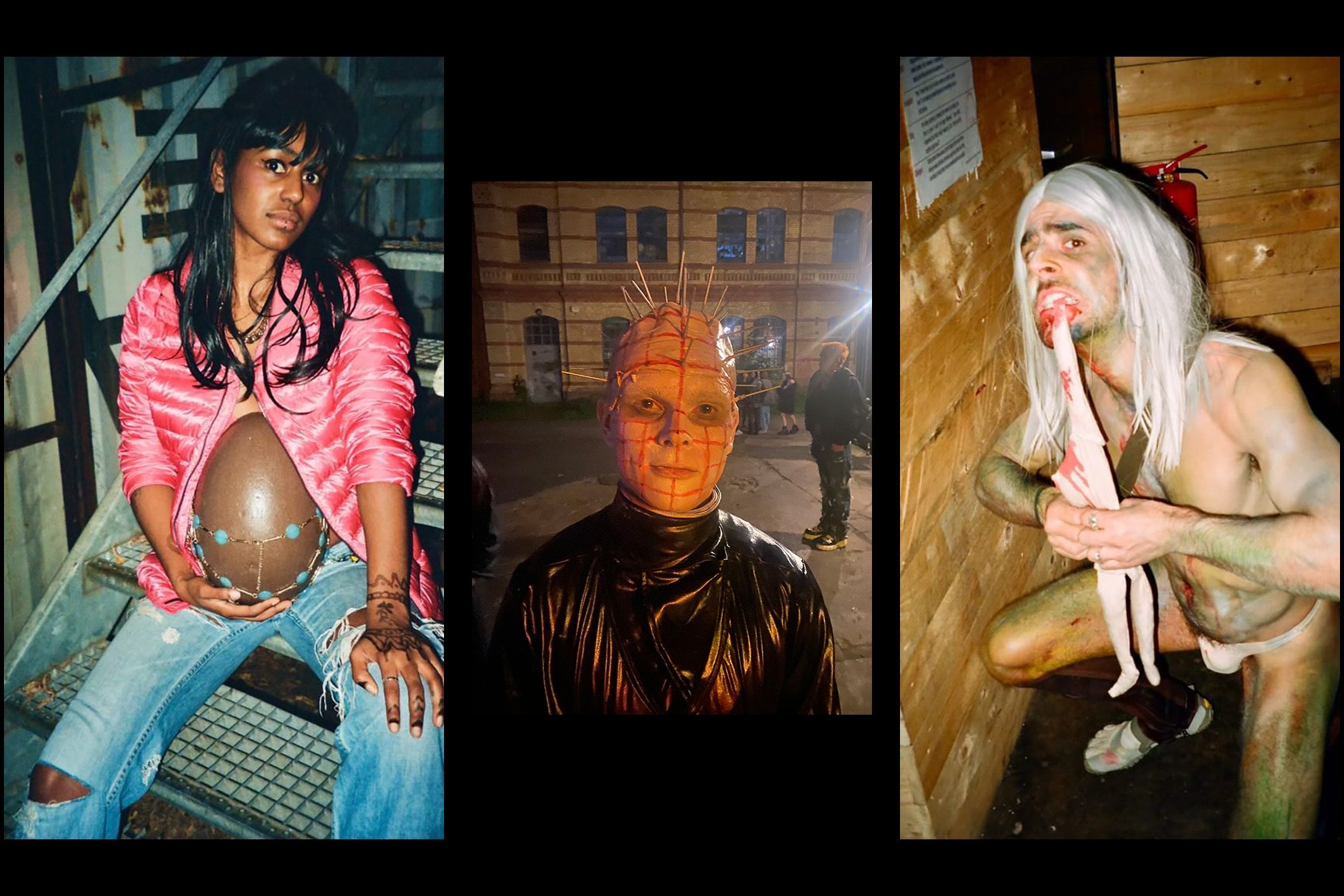
As word of Mala Junta's reputation spreads—now internationally owing to its collaborations with DIY queer collectives and established institutions worldwide—its popularity is growing. New crowds have been flocking to parties at ÆDEN and its newest location, Club OST, with each edition frequently resulting in unprecedented queues in excess of three hours.
Maintaining the crowd—and its energy—is paramount to Mala Junta's successful expansion. This process is the remit of Nayme and Débora Fernandes, who do the selection at every party, home or abroad. It's entirely intentional that the first two people any prospective partygoer encounters are both Black and queer.
"It's a statement just to have us dictating the crowd," Nayme says, and it’s emblematic of Mala Junta's actions-speak-louder-than-words ethos. "Talking politics and partying is complicated," TOOL acknowledges, "because it's not a demonstration, it's a techno party."
Read this next: Kyiv's queer clubbing community returns to the dancefloor
For a city like Berlin, whose nightlife has been criticised for its lack of diversity, Mala Junta's door policy feels transgressive. "Techno was invented by Black people," Nayme affirms. "And yet in Berlin, a supposed mecca of techno, the Black community feels like it's not a space for them. So if we're reaching capacity and I see BIPOCs in the queue, I'm gonna tell them, 'please go to the front. Because this moment is for you.'"
What’s evident to members of their kindred community is that Mala Junta's politics are for the most part rooted in the actual lived experiences of its founders, residents, and extended community, who have had their identities and existences politicised. Their ardent and vocal support of Palestine and Kyiv, and against corrupt authoritarian regimes, sets the tone and creates space for like-minded individuals. "The power of nightlife and music and community should not be underestimated or taken for granted," says Hyperaktivist, who was organising illegal raves as a teenager in Venezuela before the political situation forced her to leave. When we speak, DJ TOOL has just returned from Kyiv. "I've just seen with my own eyes how needed that is, for people to just come together and shut their eyes and listen to music together," he says. "That's also political enough in itself—to create a space where people can do that 100 per cent freely without thinking about being judged by anyone."
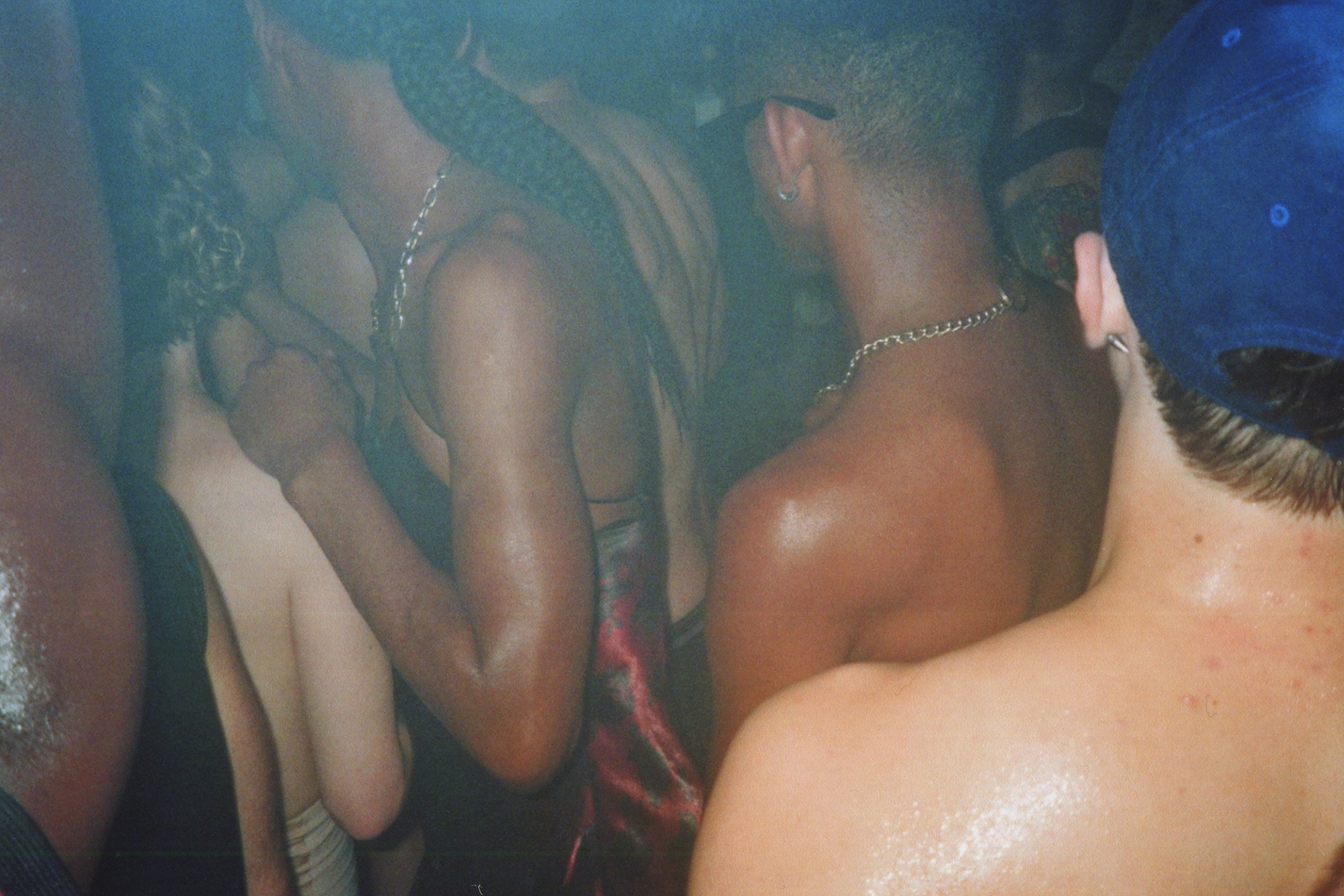
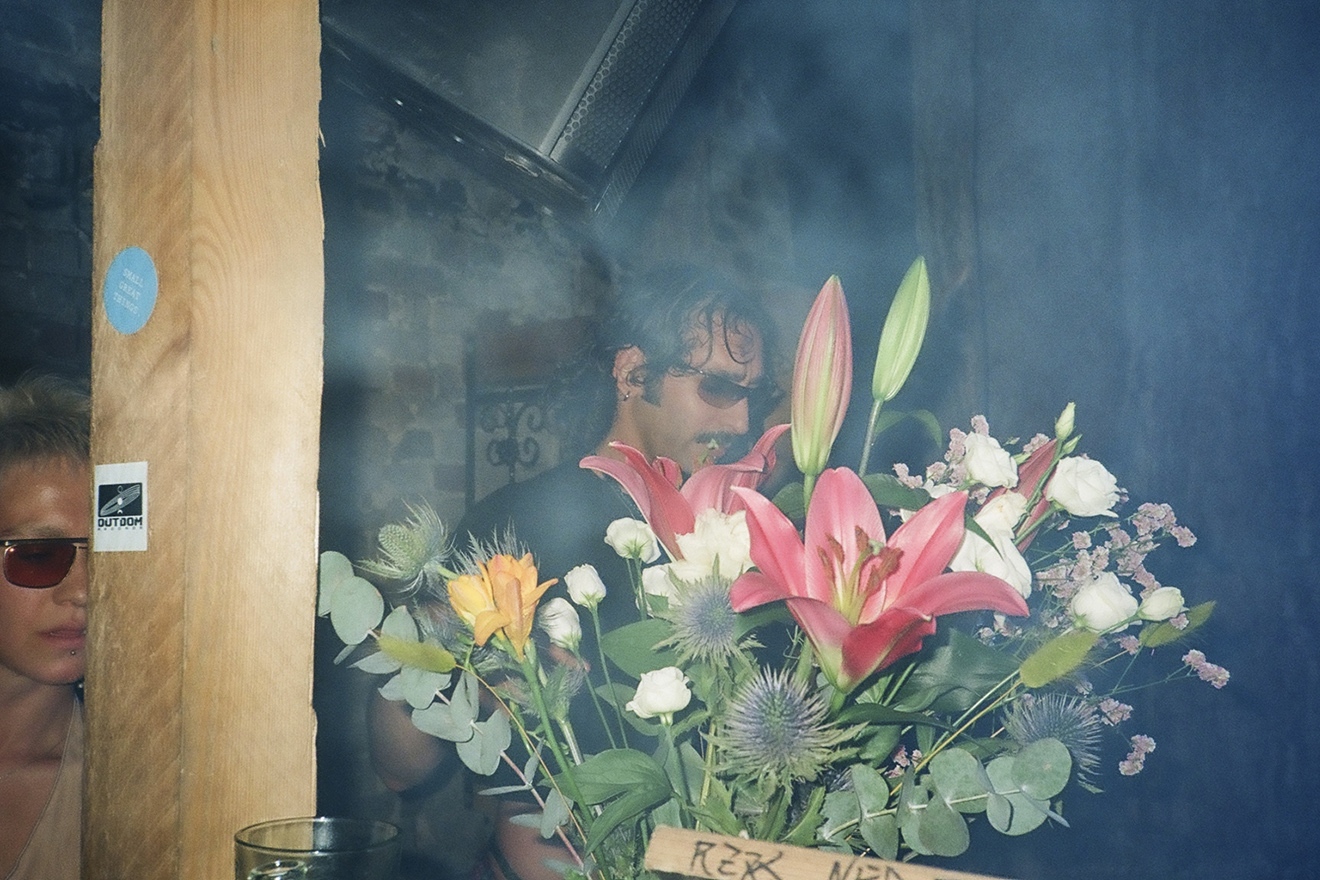
Though Mala Junta has faced its fair share of hiccups over the years, none were more trying than the COVID-19 pandemic. But the team's persistence in the face of stringent nightlife constraints exemplified their commitment to cause and community. There was the "busted forest rave," which, despite its compliance with COVID-19 restrictions, made it three hours before being shut down by authorities (to the tune of 'Sweet Dreams' by Eurythmics) and several open airs, one of which was cancelled with just four days notice, due to a highway construction. "It was fucking complicated to do anything," says TOOL, "and so painful to see the party reduced to this 'light' version that's not what it's supposed to be. But there was never any option at all to stop."
By name and nature, Mala Junta is disruptive. It's seen how the established system functions and been unafraid to do things differently. And as time goes on, it continues to grow—with the second of two collaborative compilations on Amniote Editions released last month, and a total of 19 parties (and counting) this year. But as the prospect of a major expansion seems increasingly possible, Mala Junta’s founders still consider the party an anti-capitalist and intimate endeavour. Some might call it naive, but that's fine by them.
"I think it's actually a good word to use," says TOOL. "It does feel slightly like that. I think the way we're doing the party is still very close to how we did things five years ago."
The sell-out story is pervasive in club culture, and decisions intended to enhance and improve the nightlife experience can often end up doing the opposite. Expansion, therefore, is a topic to be approached with caution. “Growth is the enemy in this particular case,” says Why Be. “I've been blessed that all the crews and labels I've been a part of have decided to stop things at the right time. And that has been extremely inspiring for me, because I've seen so many things turn really bad.”
And as community spaces continue to be affected by increased rents, soaring booking fees, and licensing issues, Mala Junta’s founding philosophy is fortifying. "Beyond a party, we're a collective," Nayme explains. "And in this notion of a collective, we understand and try to maintain the idea of a collectively shared experience that we nurture together: the DJs, the team and the crowd. We evolve, because we cannot not, but we work hard in sustaining our core radicalness."
Mala Junta's 'AE-MJ-001.2: The Collective Capsule Vol. 2' compilation is out now, get it here
Harriet Shepherd is a freelance culture writer, follow Harriet on Twitter


